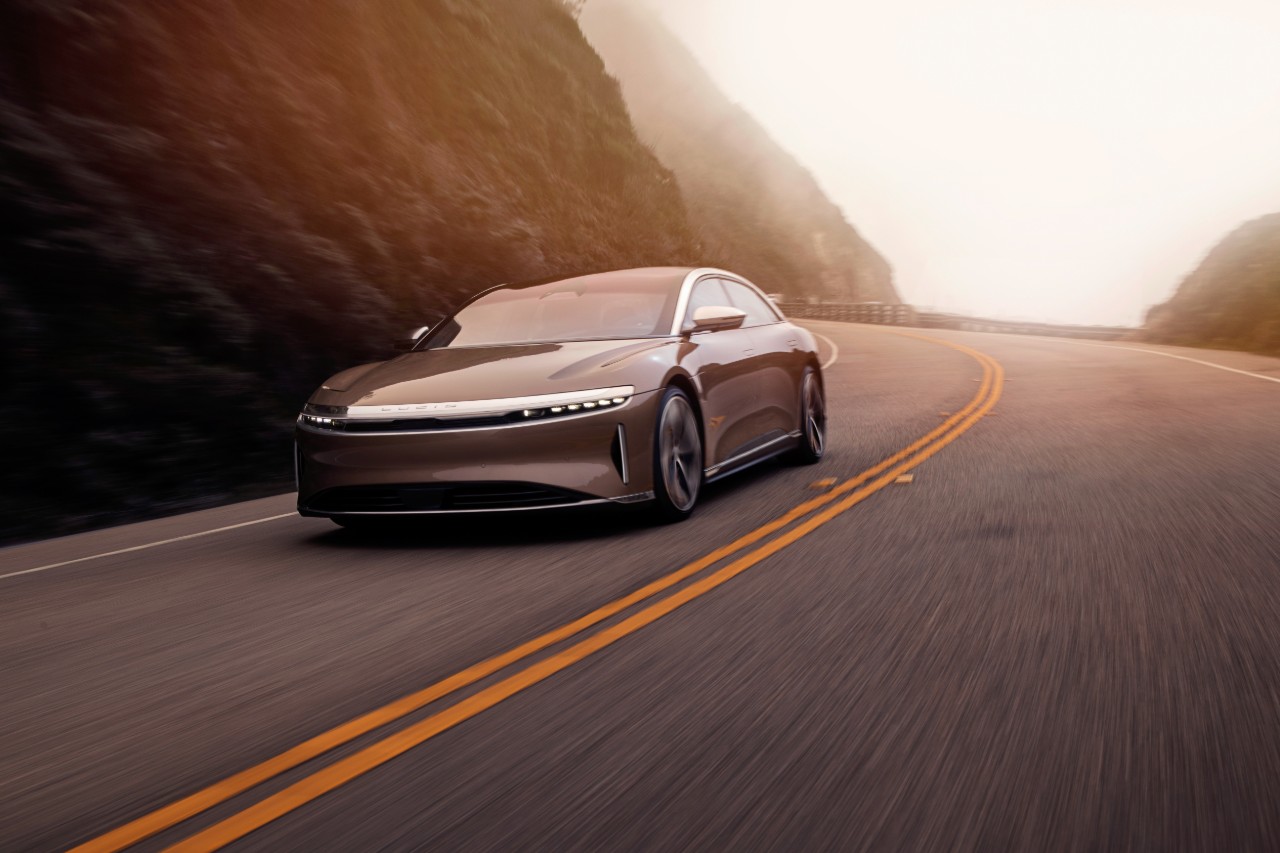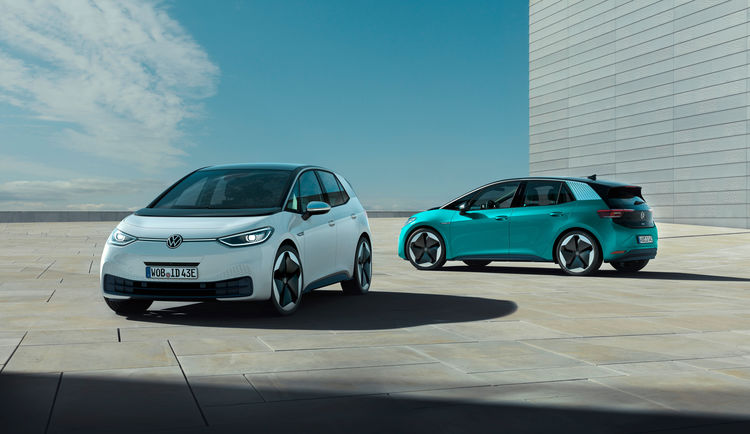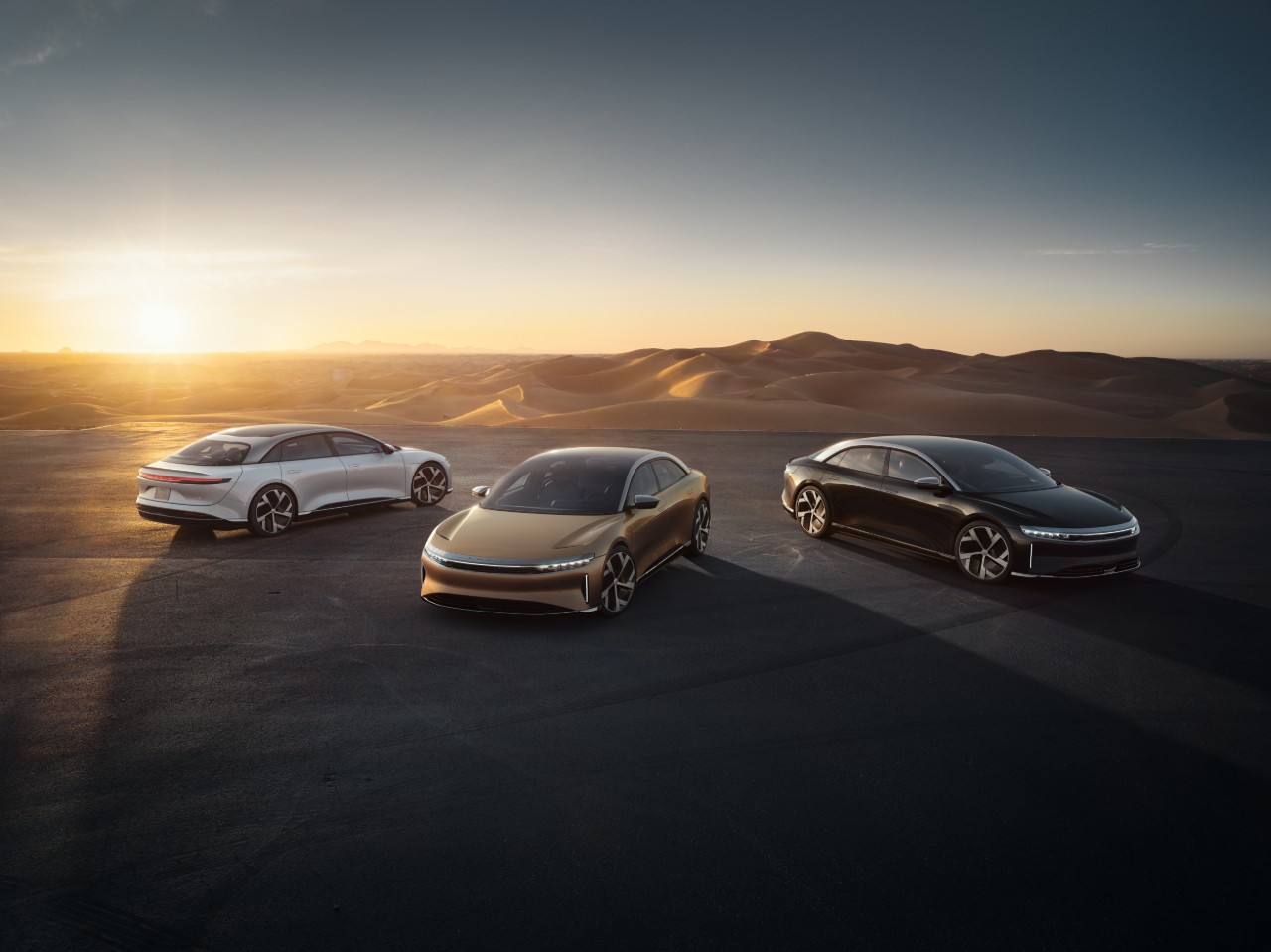Lucid’s unveiling of the Air was impressive; there is no doubt about that. It has all the ingredients for a great electric car: Speed, power, capability, luxuriousness, range, quality engineering, and a team of highly-dedicated engineers who are working to improve upon the already solid foundation that the company has laid down.
Immediately, what thought came to my mind while watching the presentation was, “They’re legit.” It is evident that Lucid was taking things seriously and was not using a bunch of fancy B-roll and suspenseful music to sell a product that wasn’t in production. No way. Lucid was dead serious about their car, and they recognize that until production begins and the Air starts being delivered to consumers, they haven’t accomplished a damn thing.
That’s a refreshing mindset in today’s day and age. To be honest, I understand a lot of companies are coming out and saying that they’re the next big thing. They’re the next Tesla, and their EV platform is the one that is going to solve all the problems.

These claims have come up empty time and time again. But Lucid definitely took a different approach. While describing and laying out the Air piece by piece for viewers to gauge thoughts on, the company’s CEO Peter Rawlinson was vocally supportive of Lucid’s efforts this far. However, he knows that the hard work is far from over. Just ask Elon Musk, who called Model 3 manufacturing “production hell” a few years ago.
That is what is super respectable about Lucid. They know that production is the real test, and it is one that never ends. After manufacturing begins and cars are delivered, there will be room for celebration, and there will be time to look at the accomplishments over the last five years. Until then, it’s hard work and grinding it out.
But it begs the question, can Lucid catch up to Tesla? Is this possible?
This is a preview from our weekly newsletter. Each week I go ‘Beyond the News’ and handcraft a special edition that includes my thoughts on the biggest stories, why it matters, and how it could impact the future.
Tesla has a considerably-sized head start by a few years over Lucid, and Tesla has already been given the nod that it has a multi-year advantage over some of the biggest companies in the world. Volkswagen and Audi have both admitted it in the past, but their focus has not primarily been on EVs. Gas cars have filled the minds of VW CEOs for years.
Ever since VW has started manufacturing the ID.3 and ID.4, they have been plagued with a variety of issues that have been software related. Volkswagen has fantastic engineering, and the problems they have faced have been hindering the company’s ability to release a quality EV promptly.
Now, VW has an extensive and successful history in automotive manufacturing. While they have only a few years of experience with developing electric cars, they have still stumbled from time to time, and this is after having so many years of manufacturing experience.

Lucid could experience some of those problems when the production of the Air begins. These issues could be a big problem because they may delay the ultimate delivery date of the Dream Edition, which is Spring 2021.
However, there is a chance that Lucid has worked out all of the kinks. Let’s not forget that Lucid didn’t spring up overnight. It was originally Atieva and was founded in 2007. It seems that a lot of the significant work was done when Peter Rawlinson came on, who worked for Tesla and helped with the Model S.
Rawlinson is a seasoned and experienced veteran, and he has done some awe-inspiring things with Lucid thus far. But is there a chance that Lucid can catch up to Tesla? Sure, but what proof is there that they have a chance?
First off, it is the range. 517 miles of range in the Air, which is impressive considering it is only a 113 kWh battery pack. This is an unheard-of amount of traveling distance in an EV and is considerably more than the Model S’ 402-mile rating. Next, the performance of the Air is critical to the company’s competition with Tesla. The Air is faster than the Model S Performance, but will it be faster than the Plaid Mode Model S? It is unknown, but many seem to think that the newly-engineered flagship sedan from Tesla will be the perfect answer to the Air. Whether that becomes a reality or not remains to be seen.
What is ultimately essential with the development of the Air is we can see that real EV manufacturers are coming to light with competitive products. For so long, legacy automakers have pumped out half-hearted attempts at producing an electric car. They throw a low kWh battery pack into a sedan, give it 100 miles of range and call it “the next big thing.” News flash: it isn’t. If you want to compete in this sector, you have to give consumers a reason to want your vehicle over a Tesla, which is really the benchmark at this point, especially since the Model 3 is widely affordable.
Lucid answered a lot of those questions on Wednesday night. They proved that their car is worth it, and they have plenty of things that could be “better” than what Tesla has to offer. But, it might not be for long, because Elon Musk is the master at taking the wind from a competitor’s sails when a new product is launched.
In reality, anything can happen. But the good news is the fact that Tesla now has a real competitor who seems to be serious about EV manufacturing. There is no goal way down the road for production, and their car works and is tested. With the competition, Tesla could see its best days yet, and Lucid could ultimately be another driving force behind widespread EV adoption.
A big thanks to our long-time supporters and new subscribers! Thank you.
I use this newsletter to share my thoughts on what is going on in the Tesla world. If you want to talk to me directly, you can email me or reach me on Twitter. I don’t bite, be sure to reach out!

News
Tesla Full Self-Driving likely to expand to yet another Asian country
“We are aiming for implementation in 2026. [We are] doing everything in our power [to achieve this],” Richi Hashimoto, president of Tesla’s Japanese subsidiary, said.

Tesla Full Self-Driving is likely to expand to yet another Asian country, as one country seems primed for the suite to head to it for the first time.
The launch of Full Self-Driving in yet another country this year would be a major breakthrough for Tesla as it continues to expand the driver-assistance program across the world. Bureaucratic red tape has held up a lot of its efforts, but things are looking up in some regions.
Tesla is poised to transform Japan’s roads with Full Self-Driving (FSD) technology by 2026.
Richi Hashimoto, president of Tesla’s Japanese subsidiary, announced the ambitious timeline, building on successful employee test drives that began in 2025 and earned positive media reviews. Test drives, initially limited to the Model 3 since August 2025, expanded to the Model Y on March 5.
Once regulators approve, Over-the-Air (OTA) software updates could activate FSD across roughly 40,000 Teslas already on Japanese roads. Japan’s orderly traffic and strict safety culture make it an ideal testing ground for autonomous driving.
Hashimoto said:
“We are aiming for implementation in 2026. [We are] doing everything in our power [to achieve this].”
The push aligns with Hashimoto’s leadership, which has been credited for Tesla’s sales turnaround.
In 2025, Tesla delivered a record 10,600 vehicles in Japan — a nearly 90% jump from the prior year and the first time exceeding 10,000 units annually.
BREAKING 🇯🇵 FSD IS LIKELY LAUNCHING IN JAPAN IN 2026 🚨
Richi Hashimoto, President of Tesla’s Japanese subsidiary, stated: “We are aiming for implementation in 2026” and added that they are “doing everything in our power” to achieve this 🔥
Test drives in Japan began in August… pic.twitter.com/jkkrJLszXN
— Ming (@tslaming) March 5, 2026
The strategy shifted from online-only sales to adding 29 physical showrooms in high-traffic malls, plus staff training and attractive financing offers launched in January 2026. Tesla also plans to expand its Supercharger network to over 1,000 points by 2027, boosting accessibility.
This Japanese momentum reflects Tesla’s broader international expansion. In Europe, Giga Berlin produced more than 200,000 vehicles in 2025 despite a temporary halt, supplying over 30 markets with plans for sequential production growth in 2026 and battery cell manufacturing by 2027.
While regional EV sales faced headwinds, the factory remains a cornerstone for Model Y deliveries across the continent.
In Asia, Giga Shanghai continues to be recognized as Tesla’s powerhouse. China, the company’s largest market, saw January 2026 deliveries from the plant rise 9 percent year-over-year to 69,129 units, with affordable new models expected later this year.
FSD advancements, already progressing in the U.S. and South Korea, are slated for Europe and further Asian rollout, complementing plans to expand Cybercab and Optimus to new markets as well.
With OTA-enabled autonomy on the horizon and retail strategies paying dividends, Tesla is strengthening its footprint from Tokyo showrooms to Berlin assembly lines and Shanghai exports. As Hashimoto continues to push Tesla forward in Japan, the company’s global vision for sustainable, self-driving mobility gains traction across Europe and Asia.
News
Tesla ships out update that brings massive change to two big features
“This change only updates the name of certain features and text in your vehicle,” the company wrote in Release Notes for the update, “and does not change the way your features behave.”

Tesla has shipped out an update for its vehicles that was caused specifically by a California lawsuit that threatened the company’s ability to sell cars because of how it named its driver assistance suite.
Tesla shipped out Software Update 2026.2.9 starting last week; we received it already, and it only brings a few minor changes, mostly related to how things are referenced.
“This change only updates the name of certain features and text in your vehicle,” the company wrote in Release Notes for the update, “and does not change the way your features behave.”
The following changes came to Tesla vehicles in the update:
- Navigate on Autopilot has now been renamed to Navigate on Autosteer
- FSD Computer has been renamed to AI Computer
Tesla faced a 30-day sales suspension in California after the state’s Department of Motor Vehicles stated the company had to come into compliance regarding the marketing of its automated driving features.
The agency confirmed on February 18 that it had taken a “corrective action” to resolve the issue. That corrective action was renaming certain parts of its ADAS.
Tesla discontinued its standalone Autopilot offering in January and ramped up the marketing of Full Self-Driving Supervised. Tesla had said on X that the issue with naming “was a ‘consumer protection’ order about the use of the term ‘Autopilot’ in a case where not one single customer came forward to say there’s a problem.”
This was a “consumer protection” order about the use of the term “Autopilot” in a case where not one single customer came forward to say there’s a problem.
Sales in California will continue uninterrupted.
— Tesla North America (@tesla_na) December 17, 2025
It is now compliant with the wishes of the California DMV, and we’re all dealing with it now.
This was the first primary dispute over the terminology of Full Self-Driving, but it has undergone some scrutiny at the federal level, as some government officials have claimed the suite has “deceptive” names. Previous Transportation Secretary Pete Buttigieg was one of those federal-level employees who had an issue with the names “Autopilot” and “Full Self-Driving.”
Tesla sued the California DMV over the ruling last week.
News
Tesla workers push back against Giga Berlin unionization
“IG Metall did not succeed in Giga Berlin‘s works council election earlier today. The union share was reduced from nearly 40% in 2024 to 31% in 2026! This is a clear message by the Giga Berlin team towards an independent co-determination! The list called Giga United, led by the current chairwoman, Michaela Schmitz, received the most votes with more than 40%! Good news for Giga Berlin!”

Tesla workers pushed back against unionization efforts at Gigafactory Berlin, and over the past few years, there has been a dramatic decrease in interest to unionize at the German plant.
Gigafactory Berlin Plant Manager André Thierig announced on Wednesday that IG Metall, the European union group, saw its share reduce from 40 to 31 percent in 2026 as employees eligible to vote on the issue. Instead, the Giga Berlin team, known as Giga United, received the most votes with more than 40 percent.
BREAKING! 🚨
IG Metall did not succeed in Giga Berlin‘s works council election earlier today. The union share was reduced from nearly 40% in 2024 to 31% in 2026!
This is a clear message by theGiga Berlin team towards an independent co-determination!
The list called Giga…
— André Thierig (@AndrThie) March 4, 2026
Thierig gave specific details in a post on X:
“IG Metall did not succeed in Giga Berlin‘s works council election earlier today. The union share was reduced from nearly 40% in 2024 to 31% in 2026! This is a clear message by the Giga Berlin team towards an independent co-determination! The list called Giga United, led by the current chairwoman, Michaela Schmitz, received the most votes with more than 40%! Good news for Giga Berlin!”
There were over 10,700 total employees who were eligible to vote, with 87 percent of them turning out to cast what they wanted. There were three key outcomes: Giga United, IG Metall, and other notable groups, with the most popular being the Polish Initiative.
The 37-seat council remains dominated by non-unionized representatives, preserving Giga Berlin as Germany’s only major auto plant without a collective bargaining agreement.
Thierig and Tesla framed the outcome as employee support for an “independent, flexible, and unbureaucratic” future, enabling acceleration on projects like potential expansions or new models. IG Metall expressed disappointment, accusing management of intimidation tactics and an “unfair” campaign.
The first election of this nature happened back in 2022. In 2024, IG Metall emerged as the largest single faction with 39.4 percent, but non-union lists coalesced for a majority.
But this year was different. There was some extra tension at Giga Berlin this year, as just two weeks ago, an IG Metall rep was accused by Tesla of secretly recording a council meeting. The group countersued for defamation.
Tesla Giga Berlin plant manager faces defamation probe after IG Metall union complaint
This result from the 2026 vote reinforced Tesla’s model of direct employee-management alignment over traditional German union structures, amid ongoing debates about working conditions. IG Metall views it as a setback but continues advocacy. Tesla sees it as validation of its approach in a competitive EV market.
This outcome may influence future labor dynamics at Giga Berlin, including any revival of expansion plans or product lines, which Musk has talked about recently.










